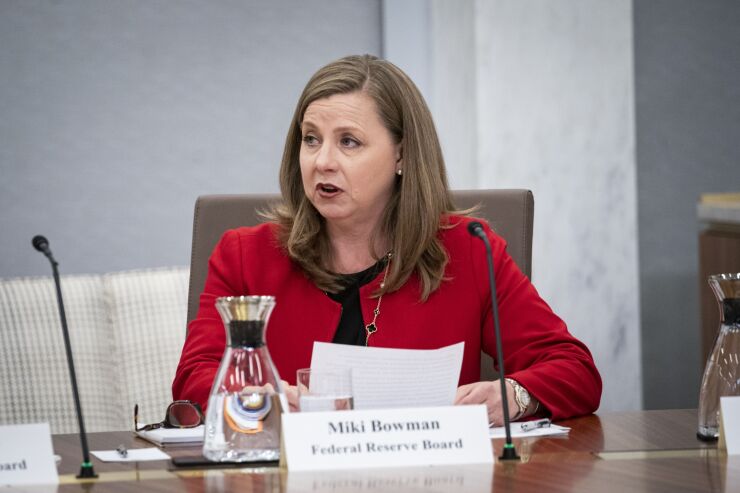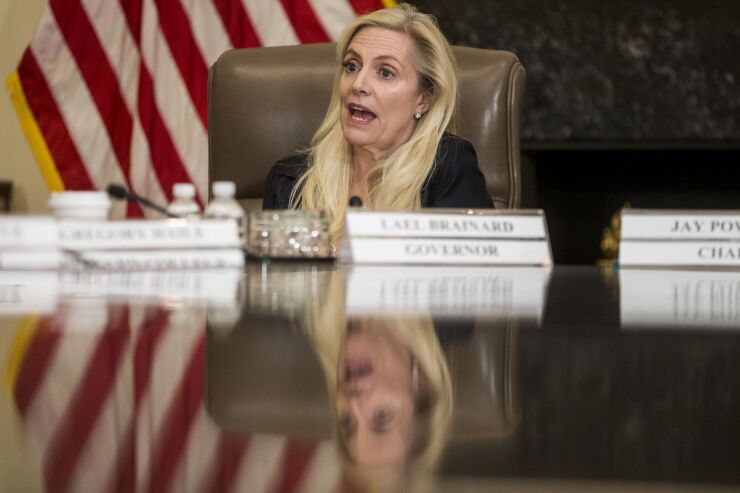Federal Reserve Gov. Michelle Bowman said one of the best ways to keep the nonbank industry in check is by relaxing regulations on banks.
During a Thursday morning event hosted by KBW, a New York-based investment bank, Bowman said the growth of the nonbank sector — sometimes referred to as
"In my mind, it's important that we work to specifically further the ability for banks to participate in those traditional activities that they have been very successful in providing services in and not unintentionally or intentionally push those services outside the regulated banking sector," Bowman said.

The banking sector's interconnectedness to less- regulated industries such as mortgage origination, financial technology, hedge funds and private equity has been a rising concern among supervisors in the Fed system. Earlier this month, the Fed Board of Governors' biannual
The report found that banks had extended nearly $2 trillion of credit to NBFIs as of the second quarter of the year, up from $1.7 trillion a year earlier.
Bowman, who sits on the Fed board's supervision and regulation committee, said regulatory changes implemented since the passage of the Dodd-Frank Act have made the financial system more secure, adding that banks are well capitalized to deal with economic shocks. Still, she added, it is worth revisiting some regulations to ensure crucial financial activity remains sufficiently within the Fed's regulatory purview.
Meanwhile, when it comes to non-banks that are engaging in banking activities, Bowman said they should be subject to the same level of oversight as regulated banks. She said this is particularly relevant when dealing with the digital ledger technologies that are seeking to automate services traditionally provided by banks.
"It's important to reiterate that where traditional banking functions are being presented outside of a regulated entity, if it's the same product, the same risk, we have to have the same regulation," Bowman said. "It really shouldn't matter where that activity is taking place; if it's the same activity that a bank is participating in or providing, it has to have the same oversight."
Bowman said the Fed's efforts to limit the presence of digital assets in the banking system have "paid dividends" in the wake of recent collapses in that industry, including the algorithmic stablecoin TerraUSD in May and the crypto exchange FTX more recently.

She said the Fed's supervisory arm will focus on communicating with banks about their interests and intents in engaging with digital assets and setting up appropriate safeguards.
"We're really looking at ways to encourage communication between or regulated institutions and supervisors so we understand what [banks] are really looking to accomplish, are these legal and legally permissible activities and is there some structure we can impose or encourage participation in those particular services that would enable a separation from holding those on [a bank's] balance sheet but also enable [them] to engage in some way that might be beneficial to customers," Bowman said.
She added that interest in this type of activity among regulated banks has been tepid, with only a handful expressing interest in providing crypto services to customers.
"We feel like our approach has been pretty prudent at this point," she said.





